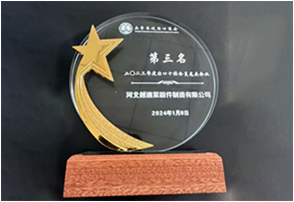Okt . 21, 2024 09:37 Back to list
Understanding B7 Threaded Rod Specifications and Applications in Construction and Industry
Understanding B7 Threaded Rods Specifications and Applications
In the realm of construction and heavy-duty engineering, the materials chosen for various applications can significantly affect the integrity and durability of structures. One such essential component is the B7 threaded rod, a type of fastener that plays a critical role in many industrial and construction applications. In this article, we will delve into what B7 threaded rods are, their specifications, and their common uses across different sectors.
What is a B7 Threaded Rod?
A B7 threaded rod is a high-strength fastener made of alloy steel, primarily specified in the ASTM A193 standard. The designation “B7” refers to the material grade, which indicates that the rod is made from a chromium-molybdenum alloy that provides enhanced strength and wear resistance. These rods are characterized by their distinctive threading which runs the entire length of the rod, allowing for easy fastening and adjustment in various applications.
Typically, B7 threaded rods possess a yield strength of 105,000 psi and a tensile strength of 125,000 psi, making them suitable for use in high-stress environments. The rods are often heat-treated to further enhance their mechanical properties, ensuring they can withstand the rigors of heavy loads and extreme conditions.
Specifications of B7 Threaded Rods
The performance of B7 threaded rods can be evaluated through several key specifications, including
1. Material Composition B7 rods are primarily made of chromium-molybdenum steel, which provides superior strength compared to standard steel grades.
2. Diameter and Length B7 threaded rods come in various diameters, typically ranging from ¼ inch to 2 inch, and can be cut to desired lengths, catering to specific application requirements.
3. Threading The rods are available in different threading options, such as coarse or fine threads, making them adaptable to a variety of fastening needs.
what is b7 threaded rod

4. Corrosion Resistance While standard B7 rods are not coated, they can be furnished with protective coatings, such as zinc plating or hot-dip galvanizing, to enhance their resistance to corrosion, especially in harsh environments.
Applications of B7 Threaded Rods
B7 threaded rods are widely used across various industries and applications. Some of the most common include
- Construction and Infrastructure These rods are often utilized in the construction of bridges, buildings, and other infrastructure projects where structural integrity is crucial. They are ideal for anchoring applications that require significant load-bearing capabilities.
- Oil and Gas In the oil and gas sector, B7 threaded rods are used in pipelines, pressure vessels, and heavy machinery, thanks to their high strength and resistance to harsh environmental conditions.
- Manufacturing Many manufacturing processes rely on B7 threaded rods to secure machinery and equipment, ensuring operational stability.
- Wind Energy In the renewable energy sector, particularly in wind turbines, B7 rods are frequently employed in turbine assemblies and mountings, where strength and reliability are paramount.
Conclusion
In summary, B7 threaded rods are a critical component in various industrial applications, known for their exceptional strength, durability, and versatility. Their high yield and tensile strength make them ideal for demanding environments found in construction, oil and gas, and manufacturing sectors. By understanding the specifications and applications of B7 threaded rods, professionals can make informed choices when selecting the right fasteners for their projects, ultimately ensuring the safety and longevity of their structures.


